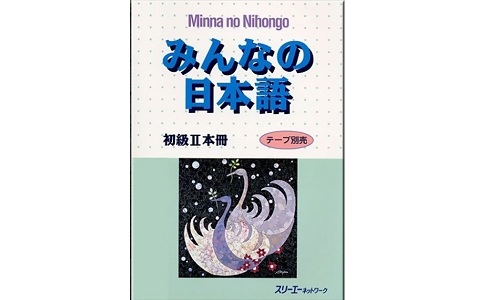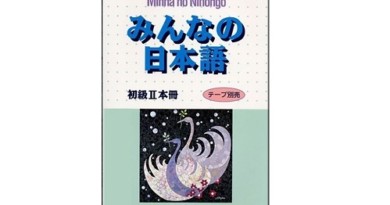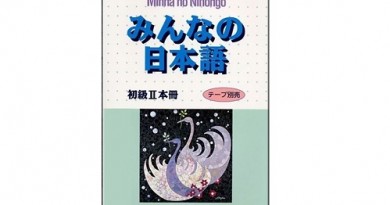Summary of Minna no nihongo coursebook lesson 12

Summary of Minna no nihongo coursebook lesson 12. Hi there! In order to provide you opportunities to search, review and study Japanese online through Minna no nihongo coursebook. In this post, Learn Japanese online will summarize vocabulary, kanji and grammar of 50 Minna no nihongo lessons.
Summary of Minna no nihongo coursebook lesson 12
Vocabulary:
| TT | Vocabulary | Kanji | Meaning |
| 1 | かんたんな | 簡単な | Simple, easy |
| 2 | ちかい | 近い | near |
| 3 | とおい | 遠い | far |
| 4 | はやい | 速い | fast |
| 5 | おそい | 遅い | slow, late |
| 6 | おおい | 多い | many, much |
| 7 | すくない | 少ない | few, little |
| 8 | あたたかい | 暖かい | warm |
| 9 | すずしい | 涼しい | cool |
| 10 | あまい | 甘い | sweet |
| 11 | からい | 辛い | spicy |
| 12 | おもい | 思い | heavy |
| 13 | かるい | 軽い | light |
| 14 | きせつ | 季節 | season |
| 15 | はる | 春 | spring |
| 16 | なつ | 夏 | summer |
| 17 | あき | 秋 | fall, autumn |
| 18 | ふゆ | 冬 | winter |
| 19 | てんき | 天気 | weather |
| 20 | あめ | 雨 | rain (n) |
| 21 | ゆき | 雪 | snow (n) |
| 22 | くもり | 曇り | cloudy |
| 23 | くうこう | 空港 | airport |
| 24 | うみ | 海 | sea |
| 25 | せかい | 世界 | world |
| 26 | おまつり | 祭り | festival |
| 27 | しけん | 試験 | examination, test |
| 28 | すきやき | dish that is made from beef and vegetable | |
| 29 | さしみ | dish that is made from raw fish and vegetable | |
| 30 | てんぷら | Seafood and fried breaded vegetable | |
| 31 | いけばな | Ikebana, a flower arrangement art of Japan | |
| 32 | もみじ | 紅葉 | red leaf |
| 33 | どちら | which | |
| 34 | どちらも | both, all | |
| 35 | ずっと | forever, more | |
| 36 | ただいいます | i am back (came back home) | |
| 37 | すごいですね | Great, right? | |
| 38 | つかれました | 疲れました | I’m tired |
| 39 | でも | but | |
| 40 | おかえりなさい | welcome back | |
| 41 | パーティー | party | |
| 42 | ホテル | hotel | |
| 43 | ホンコン | Hongkong | |
| 44 | シンガポール | Singapore | |
| 45 | いい (コーヒーが∼) | like, choose, good | |
| 46 | おすし | Sushi | |
| 47 | はじめて | 初めて | first time |
| 48 | ぎおんまつり | 祇園祭 | Gion festival (the most famous festival in Tokyo) |
2. Kanji
| 歩 | 待 | 立 | 止 | 雨 |
| 入 | 出 | 売 | 使 | 作 |
3. Grammar
| Structure | Meaning – usage | Example |
| Past tense of nouns and Adj ending in na Positive: N + でした。 Adj na ( remove な) } + でした。 Negative: N + ではありません Adj na ( remove な) + ではありません。 | きのうはあめでした。 yesterday it rained. きのうの試験(しけん)は簡単(かんたん)ではありません The test yesterday wasn’t easy. | |
| Past tense of adjectives ending in i: positive: Adj ending in i ( remove い)+かった です。 negative: Adj ending in i ( remove い) + くなかったです。 | きのうは暑かっ(あつかっ)たです。 Yesterday was so hot. きのうは暑く(あつく)なかったです。 Yesterday wasn’t hot. | |
| N1 はN2より adj です。 | Comparision that use N2 as a standard to talk about N1. | この車(くるま)はあの車(くるま)より大きい(おおきい)です。 This car is bigger than that one. |
| N1とN2とどちらがAdjです。 …..N1/N2のほうがAdjです。 | Use to ask the listener about choice between N1 and N2 | 春(はる)と夏(なつ)トどちらがすきですか。 Do you like Spring or summer? 春(はる)のほうがすきです。 I like spring more. |
| N1[の中]で何/どこ/だれ/いつが 一番+ Adj ですか。 ….N2 が一番 Adj です。 | Used to ask the listener to name the object that is the superlative one. | 家族(かぞく)の中(なか)でだれがいちばん背(せ)が高い(たかい) ですか。 Who is the tallest person in your family? |
Above is the summary of Minna no nihongo coursebook lesson 12. To see more posts at category : Japanese for beginers or tags : Summary of Minna no nihongo

